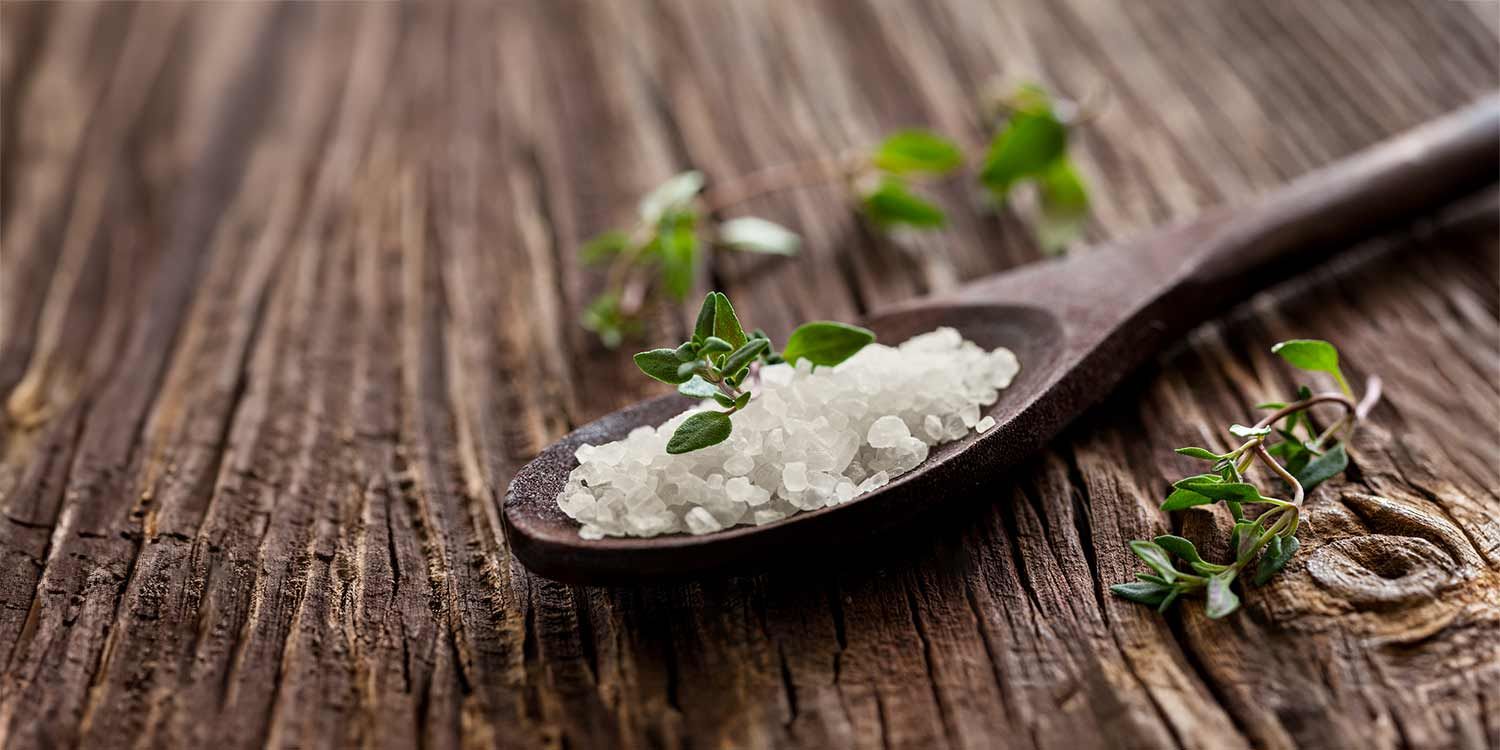Celtic Sea Salt has recently ascended as the world's most popular salt, and there are several factors that contribute to its widespread popularity.
Celtic Sea Salt is much more than just a kitchen pantry basalt. This natural salt, mined from the shores of the Celtic Sea, has become a popular choice for those seeking a healthier lifestyle and an enhancement of their culinary experiences. This salt originated along the ancient Celtic coast and has been traditionally mined and refined for centuries.
It began already a thousand years ago when the Celts in western France discovered how to extract salt from the sea by using the sun, the wind and shallow clay basins. The salty seawater was channeled into the shallow mud pools in natural channels. The sun and wind slowly evaporated the water. The mixture was stirred in the meantime until fine crystals formed which were then harvested by hand.
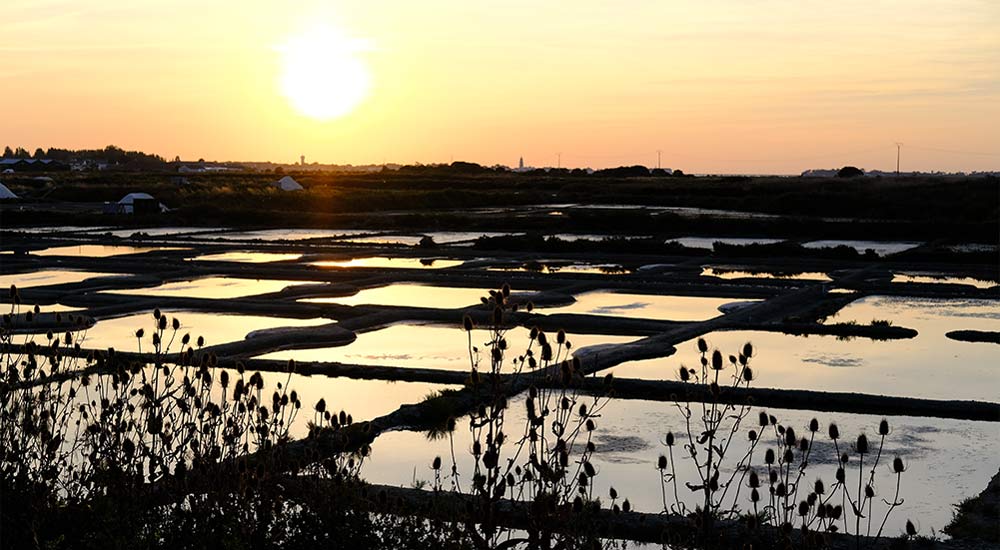
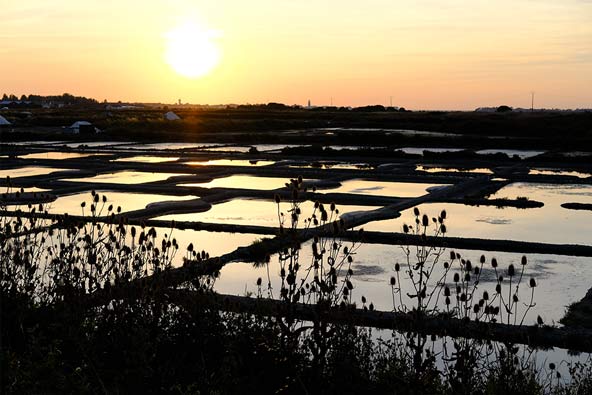
What makes the salt unique?
The salinity of the Atlantic Ocean at Brittany, France has a salinity of 3% (30 g per liter) and the water is allowed to evaporate to a concentration of 300 g per liter (30%). At that concentration, crystals form. With large rakes, the salt is then scraped up without touching the bottom.
The ionic properties of the clay together with the harvesters' knowledge and craftsmanship passed down from generation to generation gave life to the absorption of the unique trace minerals with a good balance that are found in the salt today.
Celtic salt is unique in the world. Less than 1% of the world's salt harvest has the same artisanal quality as Celtic sea salt. But the most important thing is the end product, the world's most mineral-rich and tasty salt.
In regular white refined table salt, almost all of the important minerals found naturally in sea salt have been removed, leaving basically only sodium (99.9%), which causes problems in such high concentrations and gives a sharp saltiness. In addition, anti-caking agents are often added and then the salt is bleached.
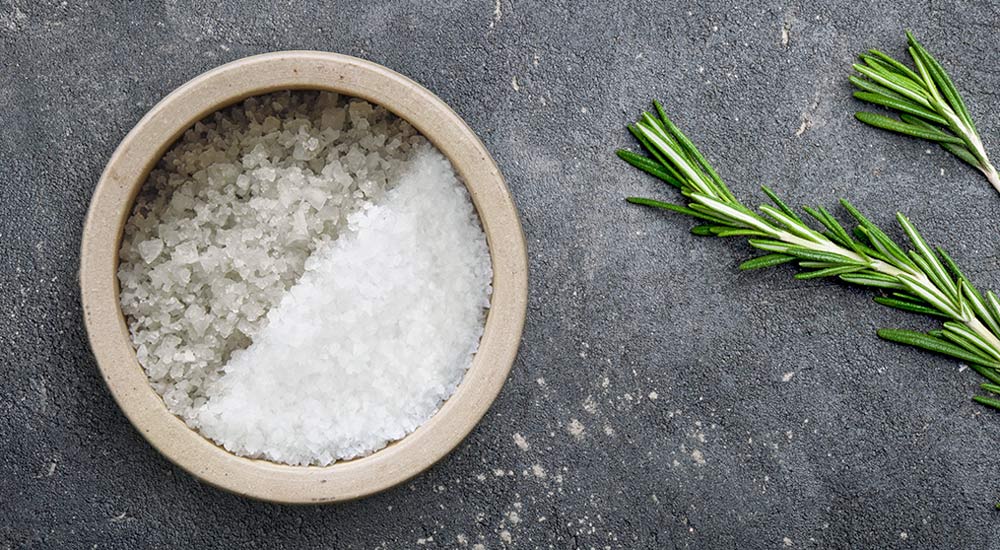
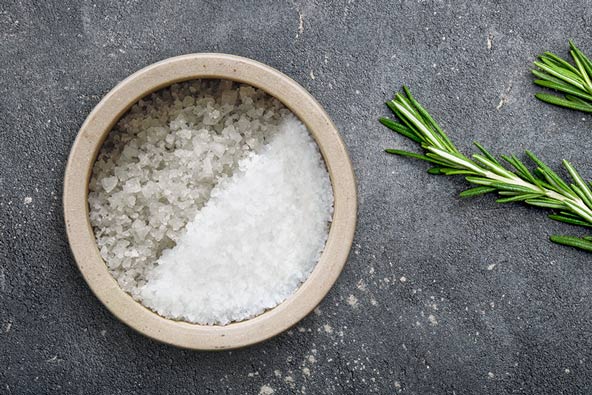
Refined and unrefined salt - what's the difference?
A distinction must be made between refined and unrefined salt. You cannot lump these together and say that all salt is bad. These two salts are not the same. Unrefined salt does not undergo the same extensive processing as refined salt.
It often contains natural minerals and trace elements from the source where it is extracted. Because unrefined salt retains its natural minerals, it can have a more complex flavor and color than refined salt. Celtic Sea Salt which is light gray of all minerals, comes from unspoiled areas in France. The salt is sun- and wind-dried and harvested in Brittany. It is guaranteed to be free of pesticides, herbicides and harmful chemicals. Studies have also shown that Celtic Sea Salt does not contain any plastic particles. Remember that sea salt with minerals is gray in color, not completely white.
How salt is used in the kitchen and when cooking
Celtic Sea Salt is as versatile as it is nutritious. Use it to enhance the flavor of your favorite dishes or as a final touch on fresh vegetables. Its fine and coarse grains make it perfect for everything from baking to grilling. The salt is known to be rich in minerals and trace elements, giving it a richer flavor profile and a more complex composition than regular table salt. Its natural and unprocessed properties make it an excellent choice for those who value authentic and unprocessed ingredients in their meals.

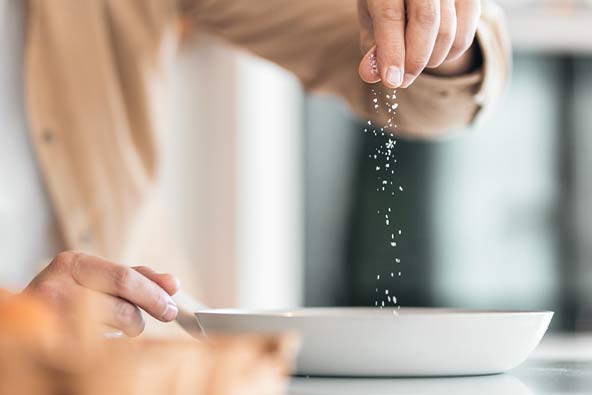
Is salt dangerous for the body?
There has been a lot of talk about salt raising blood pressure. But this is due to the high sodium content and the simultaneously low or non-existent content of potassium and magnesium. This causes blood vessels to constrict and increase blood pressure. Sea salt of the right kind contains a lot of magnesium and other important minerals that the body needs to balance sodium and therefore does not negatively affect blood pressure in the same way. Sodium itself is very important, but in the right amounts.
Of course, we should be aware of our salt consumption and pay attention to the amount of salt in semi-finished and processed foods.
Iodine in salt
Sea salt usually contains small amounts of natural iodine, but it usually does not cover the daily requirement. It is therefore usually added to refined salt.
Iodine does not stick easily to salt particles, so the anti-caking agent E-535, sodium ferrocyanide, is used to help the iodine stick. Iodine is found in the product Celtic Gourmet Iodized salt. Celtic Gourmet iodized salt is a naturally iodine-rich seaweed salt.
The base of the salt consists of finely ground Celtic Salt with 4 different wild-harvested sea plants (Dulse, Kelp, Wakame, Kombu) as well as red shiso, garlic, onion and lemon. Selina Celtic Sea Salt is not just a salt, it is an experience of purity, quality and taste. With its combination of minerals, unmatched purity and environmentally conscious production, it has become the obvious choice for those who strive for the best in their cooking.
Explore Celtic Sea Salt and discover the difference for yourself!

